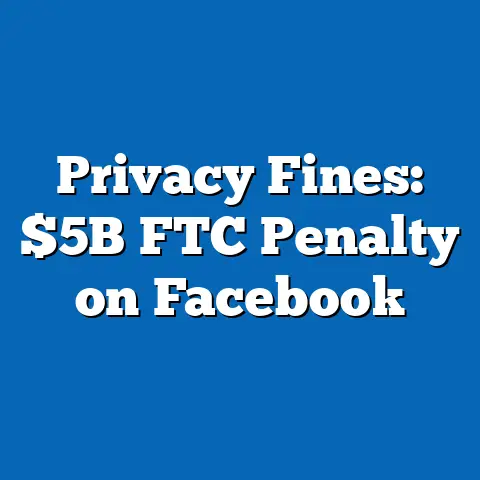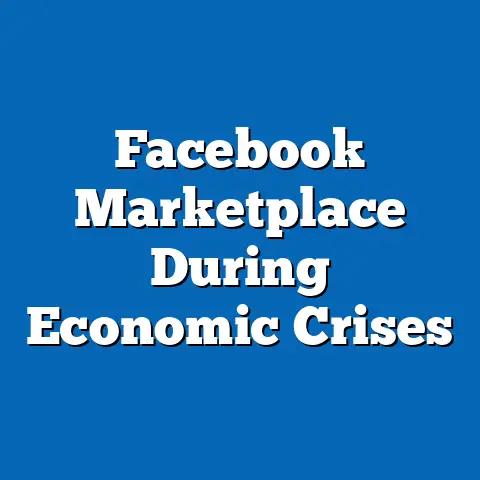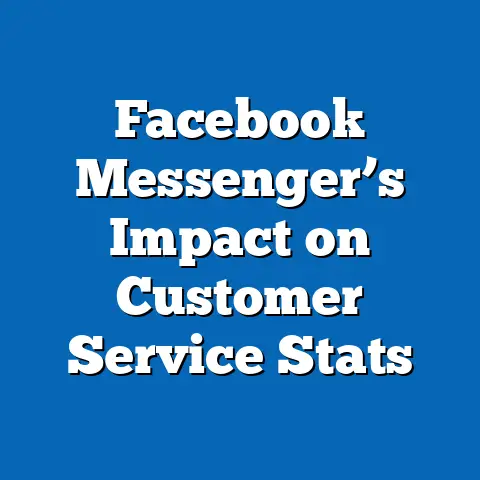Facebook Content Moderation Bias: Statistical Trends
Facebook, now under the umbrella of Meta Platforms Inc., has evolved from a simple social networking site into a global digital ecosystem with over 3 billion monthly active users as of 2023. Its core functionality lies in connecting individuals, facilitating communication, and serving as a platform for information dissemination, commerce, and community building. However, one of its most critical and controversial roles is content moderation—the process of monitoring, reviewing, and managing user-generated content to ensure compliance with platform policies and legal standards.
Content moderation on Facebook is a complex operation involving artificial intelligence (AI) algorithms, human reviewers, and evolving policy frameworks. It shapes what billions of users see, influencing public discourse, political movements, and cultural narratives. As we approach 2024, concerns about bias in content moderation—whether driven by algorithmic design, human judgment, or corporate interests—remain a focal point of academic, political, and societal debate.
Section 1: Defining Characteristics of Facebook’s Content Moderation System
Facebook’s content moderation system is a hybrid model that combines advanced technology with human oversight. At its core, the system relies on AI tools to detect and flag content that violates the platform’s Community Standards, which cover areas such as hate speech, misinformation, violence, and nudity. According to Meta’s 2023 Transparency Report, over 90% of content removals are initiated by automated systems before user reports, showcasing the scale of technological intervention.
Human moderators, numbering in the tens of thousands globally, step in to review nuanced cases or appeals. These reviewers are often employed through third-party contractors, raising questions about training consistency, cultural understanding, and working conditions. The interplay between AI and human judgment is a defining characteristic, as it seeks to balance efficiency with contextual accuracy.
Another key feature is the platform’s reliance on user reports and feedback loops to refine moderation processes. Policies are updated regularly to address emerging issues, such as deepfakes or coordinated disinformation campaigns. However, this reactive approach can lag behind rapidly evolving online behaviors, contributing to perceptions of bias when certain content or communities appear disproportionately targeted.
Section 2: Historical Context of Content Moderation on Facebook
Facebook’s approach to content moderation has evolved significantly since its inception in 2004. Initially, the platform operated with minimal oversight, reflecting the early internet’s ethos of free expression. However, as user numbers grew and high-profile incidents—such as the 2016 U.S. election interference by foreign actors—came to light, the need for structured moderation became undeniable.
The Cambridge Analytica scandal in 2018 marked a turning point, exposing how data misuse and unchecked content could influence democratic processes. Public and governmental pressure led Facebook to invest heavily in moderation infrastructure, increasing its moderator workforce and enhancing AI capabilities. By 2020, the platform reported removing over 22 million pieces of hate speech content annually, a figure that underscored both the scale of problematic content and the intensity of moderation efforts.
Historical events like the Arab Spring (2011), where Facebook played a pivotal role in mobilizing activists, and the January 6th U.S. Capitol riot (2021), where it was criticized for failing to curb incendiary posts, highlight the platform’s dual role as a tool for empowerment and a potential vector for harm. These moments have shaped policies on political content, misinformation, and user safety, often under intense scrutiny for perceived biases in enforcement.
Section 3: Societal Implications of Content Moderation and Bias
Content moderation on Facebook is not merely a technical process; it has profound societal implications. The platform’s decisions on what to amplify or suppress can shape public opinion, influence elections, and impact marginalized communities. For instance, studies from the Pew Research Center in 2022 found that 64% of U.S. adults believe social media platforms like Facebook have a significant impact on political discourse, often amplifying divisive content due to engagement-driven algorithms.
Bias in moderation—whether real or perceived—can erode trust in the platform and exacerbate social tensions. If certain political ideologies, cultural perspectives, or languages are disproportionately flagged or removed, it risks silencing voices and reinforcing power imbalances. A 2021 report by Human Rights Watch noted instances where content from activists in conflict zones, such as Palestine, was removed due to overzealous moderation, raising concerns about free expression in critical contexts.
Moreover, content moderation affects mental health and community dynamics. Over-moderation can stifle open dialogue, while under-moderation allows harmful content like cyberbullying or misinformation to proliferate. As we look toward 2024, these societal stakes underscore the urgency of addressing bias in moderation systems to ensure equitable access to digital spaces.
Section 4: Statistical Trends in Content Moderation for 2024
4.1 Scale of Content Moderation Operations
Projections for 2024 suggest that Facebook will continue to handle an unprecedented volume of content. Based on Meta’s 2023 reports, the platform processes over 5 billion pieces of content monthly, with flagged items increasing by 15% year-over-year due to user growth in regions like Southeast Asia and Africa. By 2024, analysts estimate that AI-driven removals could account for 95% of initial actions, driven by advancements in natural language processing and image recognition technologies.
However, the sheer scale poses challenges for accuracy. False positives—content incorrectly flagged as violating—remain a concern, with 2023 data indicating a 10-12% error rate in automated decisions. This trend is likely to persist into 2024 unless significant improvements in contextual AI understanding are achieved.
4.2 Bias in Content Removal by Category
Statistical analysis of past moderation reports reveals disparities in content removal across categories, a trend expected to continue into 2024. Hate speech and misinformation remain the most frequently removed types of content, with Meta reporting 25.5 million and 29 million actions, respectively, in Q2 2023. However, research from the Center for Countering Digital Hate suggests that enforcement is inconsistent, with right-leaning misinformation often evading detection compared to left-leaning content, fueling accusations of political bias.
Language and cultural bias also play a role. Content in non-English languages, particularly from under-resourced regions, is less likely to be accurately moderated due to limited AI training data. A 2022 study by the University of Oxford found that Arabic and Hindi content had a 20% higher false positive rate compared to English content, a disparity likely to persist in 2024 without targeted interventions.
4.3 Appeals and Transparency Metrics
User appeals against moderation decisions are a critical metric for assessing bias and fairness. In 2023, Meta reported that only 2% of appealed content removals were overturned, suggesting either high accuracy in initial decisions or barriers to successful appeals. Projections for 2024 indicate a slight increase in overturn rates to 3-4%, driven by improved user education on appeal processes and external pressure for transparency.
Transparency reports themselves are becoming more detailed, with Meta committing to disclose more granular data on moderation errors by region and demographic in 2024. This could reveal hidden biases, such as over-moderation of content from specific ethnic or political groups, though the depth of disclosure remains uncertain.
4.4 Regional Disparities in Moderation
Geographic trends highlight significant disparities in moderation outcomes, a pattern expected to intensify in 2024. High-income regions like North America and Europe benefit from more robust moderation resources, with faster response times to flagged content (under 24 hours on average). In contrast, regions like Sub-Saharan Africa face delays of up to 72 hours, according to 2023 data, due to fewer local moderators and limited language support.
These disparities contribute to perceptions of bias, as users in under-served regions feel their concerns are deprioritized. With user growth projected to be fastest in Africa and Asia by 2024, addressing regional inequities will be critical to maintaining trust and mitigating bias accusations.
Section 5: Factors Contributing to Content Moderation Bias
5.1 Technological Limitations
AI systems, while efficient, are not immune to bias. Algorithms are trained on datasets that may reflect historical prejudices or lack diversity, leading to skewed outcomes. For example, a 2022 study by MIT found that facial recognition tools used in content moderation misidentified individuals of color at higher rates, contributing to unfair content flagging.
Moreover, AI struggles with cultural nuance and sarcasm, often misinterpreting benign content as harmful. While Meta is investing in contextual AI models for 2024, experts caution that technological bias will remain a challenge without diverse training data and continuous human oversight.
5.2 Human Moderator Challenges
Human moderators, often underpaid and overworked, face immense pressure to make quick decisions on complex content. Reports from whistleblowers in 2021 revealed that moderators sometimes receive as little as two seconds per post to decide, leading to errors and inconsistent enforcement. Cultural unfamiliarity further compounds bias, as moderators may misjudge content from regions they are not familiar with.
By 2024, improvements in training and working conditions are expected, but the reliance on outsourced labor in low-cost regions raises ethical questions about equity in the moderation workforce. Addressing these human factors is essential to reducing bias.
5.3 Policy and Corporate Influence
Facebook’s Community Standards are shaped by corporate priorities and external pressures, including government regulations and advertiser demands. Critics argue that policies often favor powerful entities, with a 2020 internal report leaked to The Wall Street Journal revealing that high-profile accounts received leniency in moderation—a practice dubbed “cross-check.” While Meta claims to have reformed this system, skepticism persists about corporate influence on moderation decisions.
Additionally, geopolitical factors play a role. Governments in authoritarian regimes often pressure platforms to censor dissent, while democratic nations push for stricter rules on misinformation. Balancing these demands without introducing bias remains a significant challenge for 2024.
5.4 Sociocultural Dynamics
Content moderation reflects broader societal biases, as policies are interpreted through cultural lenses. For instance, nudity guidelines have historically been criticized for disproportionately targeting women’s bodies, while hate speech rules may under-address microaggressions due to subjective interpretations. As global user diversity grows by 2024, ensuring culturally sensitive moderation will be critical to avoiding systemic bias.
Section 6: Comparative Analysis Across Platforms
While this article focuses on Facebook, comparing its moderation practices with other platforms like Twitter (now X) and YouTube provides valuable context. Twitter, under new management since 2022, has adopted a lighter-touch approach to moderation, emphasizing free speech over strict enforcement. This contrasts with Facebook’s more proactive removal strategy, which some argue overcorrects for past criticisms.
YouTube, meanwhile, faces similar challenges with AI bias but benefits from a more visual medium, where content like violence is easier to detect algorithmically. According to a 2023 report by the Electronic Frontier Foundation, YouTube’s appeal overturn rate (5%) is higher than Facebook’s, suggesting a more responsive system for user grievances. By 2024, Facebook may need to adopt elements of these approaches to address bias perceptions.
However, each platform operates within unique constraints. Facebook’s massive user base and diverse content types—from text to live video—make uniform moderation more complex than on Twitter (text-heavy) or YouTube (video-focused). This diversity necessitates tailored solutions rather than one-size-fits-all policies.
Section 7: Implications for Society and Key Domains
7.1 Impact on Public Discourse
Bias in content moderation directly affects the quality of public discourse. If certain viewpoints are systematically suppressed—whether due to algorithmic error or policy design—it can skew democratic processes. With major elections slated for 2024 in countries like the U.S. and India, Facebook’s role in curbing misinformation while avoiding censorship will be under intense scrutiny.
7.2 Workplace and Economic Effects
Businesses and creators relying on Facebook for marketing and engagement are also impacted by moderation bias. Unfair content removals can harm livelihoods, particularly for small businesses or independent creators in developing regions. A 2023 survey by the International Digital Economy Association found that 30% of small business owners using Facebook reported revenue losses due to content moderation errors, a trend likely to persist into 2024 without systemic fixes.
7.3 Cultural and Social Ramifications
Culturally, biased moderation can marginalize already vulnerable groups, reinforcing digital inequality. For instance, over-moderation of LGBTQ+ content, often flagged as “inappropriate,” has been documented by advocacy groups like GLAAD. Ensuring equitable treatment across diverse identities and cultures will be a key challenge for Facebook in 2024.
7.4 Legal and Regulatory Landscape
Governments worldwide are tightening regulations on social media moderation, with laws like the EU’s Digital Services Act (effective 2024) mandating transparency and fairness. Non-compliance could result in fines of up to 6% of global revenue for Meta. These regulations may reduce bias by enforcing accountability, but they also risk overreach, potentially stifling innovation in moderation practices.
Section 8: Addressing Bias—Potential Solutions for 2024
8.1 Technological Innovations
Investing in AI that prioritizes contextual understanding over keyword-based flagging is crucial. Meta’s planned rollout of multilingual AI models in 2024 could reduce language-based bias, though success depends on diverse training datasets. Independent audits of algorithms, as recommended by the UN Human Rights Council, could further ensure fairness.
8.2 Human-Centric Approaches
Improving moderator training and compensation is essential. By 2024, Meta should aim to hire more local moderators fluent in regional languages and cultures, reducing misinterpretations. Additionally, expanding user appeal mechanisms with clearer guidelines can empower users to challenge biased decisions.
8.3 Policy Reforms
Transparent policy-making, involving input from civil society and marginalized groups, can mitigate bias. Meta’s Oversight Board, established in 2020, has made strides in reviewing high-profile cases, but its scope remains limited. Expanding its mandate by 2024 to address systemic bias trends could enhance accountability.
8.4 Collaborative Efforts
Partnerships with independent researchers and NGOs can provide external perspectives on moderation challenges. Programs like the Social Science One initiative, which grants data access to academics, should be scaled in 2024 to uncover hidden biases and inform evidence-based solutions.
Section 9: Forward-Looking Insights and Uncertainties
As we approach 2024, Facebook’s content moderation system stands at a crossroads. Advances in AI and increased transparency offer hope for reducing bias, but the scale of operations and diversity of user needs present persistent challenges. The platform’s ability to balance free expression with harm prevention will shape its societal impact in the coming years.
Uncertainties remain, particularly around regulatory outcomes and technological breakthroughs. Will stricter laws like the Digital Services Act force meaningful change, or will they create compliance burdens that hinder innovation? Can AI evolve to handle cultural nuance at scale, or will human oversight remain indispensable?
Ultimately, addressing content moderation bias requires a multi-stakeholder approach, combining technological, human, and policy interventions. While perfection may be unattainable, incremental progress toward fairness and equity in moderation practices can rebuild trust and ensure that Facebook remains a platform for diverse voices rather than a gatekeeper of selective narratives.
Conclusion
Facebook’s content moderation system, a cornerstone of its functionality, is both a technological marvel and a societal lightning rod. Historical events, from election interference to global uprisings, have underscored its importance, while statistical trends for 2024 reveal ongoing challenges with scale, bias, and regional disparities. The societal implications—spanning public discourse, economic opportunity, and cultural equity—demand urgent attention to ensure that moderation serves as a tool for inclusion rather than exclusion.
By integrating advanced AI, empowering human moderators, reforming policies, and fostering collaboration, Meta has the potential to mitigate bias in 2024. However, the path forward is fraught with uncertainties, requiring continuous adaptation to technological and societal shifts. As a platform that shapes global communication, Facebook’s commitment to fairness in content moderation will be a defining factor in its legacy and impact on future generations of digital citizens.






